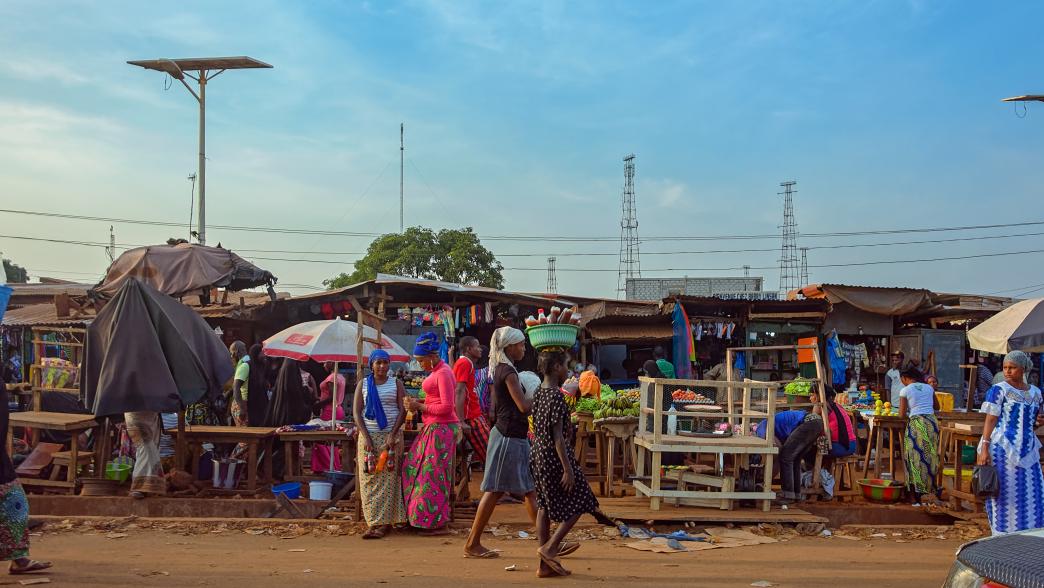
Diagnosing Corruption in the Bauxite Sector in Guinea: Three Conditions for a More Transparent Future
Bauxite, a crucial strategic ore in aluminum production, plays a central role in the manufacturing of the technologies needed for the energy transition. According to the International Aluminium Institute (IAI), global aluminum demand is expected to increase by nearly 40 percent by 2030. In 2022, Guinea positioned itself as the second-largest global bauxite producer, behind Australia, and the leading bauxite exporter worldwide, with an annual production of nearly 103 million tons. However, the revenues generated by Guinea’s mining sector do not align with this potential.
Various stakeholders in Guinea, from civil society to policymakers, have consistently highlighted the paradox of the mining sector—rich in underground resources but economically poor. There is dissatisfaction with the revenues generated by Guinea's extractive sector. In 2020, the mining sector's contribution to the national budget was estimated at just over $500 million, a figure deemed "insulting" by Guinea's current Prime Minister of the military junta.
The governance of Guinea's mining sector faces numerous challenges, with corruption permeating the entire mining value chain. The complexity and opacity surrounding the sector make combating corruption and improving transparency particularly challenging. To address this, the Natural Resource Governance Institute (NRGI) has developed a research and action tool. This tool is designed to help civil society groups, government agencies, international organizations, private businesses, and investors identify the most concerning forms of corruption, diagnose their causes, and develop an action plan to prevent these practices in the future. Originally implemented in Mongolia in 2021, the tool has since been deployed in several countries, including Colombia, the Philippines, and Guinea, where its implementation supports and strengthens the capacities of Guinean civil society organizations (CSOs).
The findings of this corruption diagnostic report in Guinea's mining sector, led by Guinean CSOs, not only highlight concerning corruption risks, but also proposes an action plan to address these issues. This diagnostic represents a significant step forward in addressing corruption risks in Guinea's bauxite sector; however, effective implementation will be crucial. Given this, achieving positive long-term changes will require continuous effort. From our perspective, three conditions are needed to ensure the viability of the process in Guinea.
1. Strengthening civil society’s efforts to implement the action plan
One unique feature of the diagnostic tool is fostering concerted actions among different stakeholders. However, resistance to change inevitably poses a significant challenge, undermining the effective implementation of the action plan. Because of this, the fight against corruption in Guinea requires a long-term perspective, with significant commitment and constant perseverance from all stakeholders. In this context, CSOs are urged to assume an even more decisive role by increasing their monitoring of the sector's governance.
The success of the action plan hinges on continuous monitoring, with regular updates to assess progress against identified indicators. The National Agency for the Fight Against Corruption (ANLC) and the executive secretariat of the EITI were consulted and involved at all key stages of the project, leveraging their status and influence to act as catalysts for executing actions, monitoring and evaluating progress, and identifying necessary adjustments. The ANLC should raise awareness among both public and private actors tempted by identified corrupt practices while implementing the actions defined in the action plan. This approach aligns with its primary mission to end corruption through education, prevention, and awareness in both the public and private sectors, while also ensuring that rigorous law enforcement creates a deterrent effect. Additionally, the executive secretariat, as the main driver of the EITI-Guinea multi-stakeholder group, should ensure active engagement by this group in the concrete implementation of actions outlined in the plan.
2. Promoting government agency transparency through collaborative efforts involving the media and CSOs
Once again, the success of the diagnostic action plan hinges primarily on the active engagement of stakeholders, aligning with the multi-stakeholder approach of the tool. Active engagement by all relevant actors is crucial, ensuring open communication and gathering their feedback at each stage. In the specific context of Guinea, government agencies are the key stakeholders due to their specific responsibilities in the sector. However, achieving full engagement from them is challenging, particularly on such a sensitive issue as corruption. In navigating this context, a key starting point is ensuring active engagement, grounded in the principle that improving governance stems from citizens' follow-up actions, who must fairly assume their responsibilities. To achieve this, it’s essential to increase awareness, especially through the media who play a crucial role in promoting transparent accountability, facilitating public access to information, and contributing to reducing the administrative burden that generally characterizes public administration.
3. Systematically empowering civil society actors
A significant advantage of implementing this project in Guinea is that it occurs at a time when Guinean CSOs are well-coordinated to ensure they can make the most of the EITI process, leading to the creation of a civil society representatives' group within the EITI-Guinea multi-stakeholder group.
Since 2021, NRGI has supported these CSOs in adopting their code of conduct and in the renewal of civil society coordination within the EITI decision-making body in Guinea. This sustained commitment has led NRGI to provide ongoing technical support until the new structure is fully operationalized. This structure has played a decisive role, leading the diagnostic efforts in Guinea. The engagement of an external consultant in this project has also facilitated skills transfer, which can now be used for future initiatives. To gradually assume this responsibility, civil society members need continuous support to maintain momentum and enthusiasm for the process. NRGI, in line with its goals, has made a significant contribution and remains committed to continued technical support. However, it is now essential to seek the support of additional technical and financial partners, with a history of supporting Guinean civil society, such as OSIWA, GIZ, Transparency International, the Hewlett Foundation, and USAID. They have a crucial role to play in supporting this initiative, which will improve transparency, good governance, and the fight against corruption in the Guinean extractive sector, aligning with a post-political transition perspective.
The corruption diagnostic effort in Guinea's bauxite sector is not limited to detecting current challenges, but also paves the way for a more promising future for Guinea’s mining industry. By acknowledging and addressing corruption issues, Guinea can unlock the full potential of its mineral resources, promoting economic growth and a shift toward more transparent and responsible governance. By continuing on this path and maintaining the commitment of all stakeholders, Guinea has the opportunity to not only bolster its position as a global leader in the bauxite industry, but also foster an environment conducive to a prosperous future for the sector. This in turn will contribute to the country's sustainable development.
NRGI has developed an innovative tool to diagnose and combat corruption in the extractive sector.
Authors

Mohamed Cisse
Guinea Program Associate

Matthieu Salomon
Lead, Anticorruption


